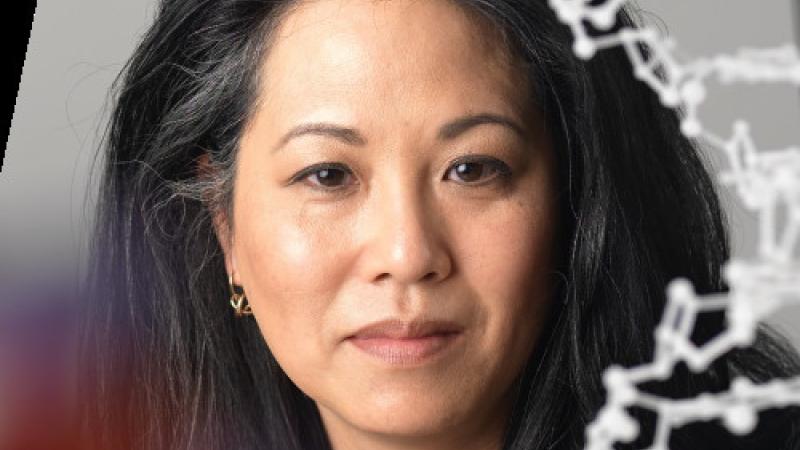Change Agent: Vivian Ota Wang

Game Changers
/gām/ /‘CHānjər/
noun
An individual, group, or organization that effects a significant shift in the current manner of doing or thinking about something.
Game Changers are institution builders. They forge partnerships to revolutionize organizational culture, policy, and procedure. They encourage decision makers to go beyond the “tactical” towards the “strategic." They cultivate and harness the creative ideas that inspire new paradigms throughout the Agency, fueling innovation and advancing its mission. They uphold equity, diversity, and inclusion, and they are true business imperatives that make up our organizational fabric and operationalize these concepts as part of their overall leadership strategy.
game
/gām/
noun
a type of activity or business
an organization’s (or person’s) standard or method of play
a mode of performance
changer
/‘CHānjər/
verb
one who makes something different
one who alters the terms or transforms them entirely
one who arrives (or makes others arrive) at a fresh phase; become new
Change Agents are cultivators who plant seeds in our lives. Their presence nurtures and molds us every day, giving shape to the environment in which we work. They are fueled by their own passion to contribute and thus incite passion in others. They are the risk takers and the visionaries who see possibilities when others see obstacles.
Dr. Vivian Ota Wang, Deputy Director of the Office of Data Sharing in the National Cancer Institute at the National Institutes of Health (NIH) is a change agent for the Sexual and Gender Minority (SGM) community for her research and expertise in race, sex, and gender issues.
How is this change agent addressing issues in the SGM community?
As a member of NIH senior management, Dr. Ota Wang is responsible for drafting and implementing policies and providing budget, policy and personnel oversight, management, and compliance. She serves as a psychology, ethics, and genomics expert for data access and sharing and research participant protection policies where she applies her expertise in race, sex, and gender issues. In this capacity, she has been responsible for ensuring data access and sharing compliance with policies, laws, and regulatory standards for individual and group protections for the National Human Genome Research Institute (NHGRI), The White House’s Alzheimer’s Disease Sequencing Project, and The Cancer Genome Atlas (TCGA). She is also responsible for investigating and adjudicating data misuses and conflict-of-interest violations. She previously served as a NIH Agency Representative to the National Science and Technology Council of the Executive Office of the President (The White House) under the Bush and Obama administrations, a Senior Advisor to the Director of NIH’s Office of Behavioral and Social Sciences Research (OBSSR), and a Program Director of the Ethical, Legal, and Social Implications (ELSI) Research Program at NHGRI.
What is this change agent doing to show leadership in diversity and inclusion of the SGM community?
Dr. Ota Wang is a genetic counselor and psychologist with domestic and global experiences in research, education, and ethics that span the psychological, genomic and nanoscale sciences. She currently applies her expertise in sex and gender issues along with her experience in science policy and research participation protections to data access and sharing as the Deputy Director of the Office of Data Sharing at the National Cancer Institute (NCI). Prior to joining NIH, Dr. Ota Wang held tenure-track faculty positions at Rutgers, Arizona State, and Vanderbilt University where she maintained a research program focused on racial identity, sexual identity, research ethics, program development and evaluation, and community engagement in psychology, genomics, and public health. Her work involved a publication titled “Holding up Half the Sky: Reproductive Decision-making of Asian Women in America. In D. Pope-Davis and H. L. Coleman (Eds.), The intersections of race, class, and gender -Implications for multicultural counseling”.
Dr. Vivian Ota Wang is a 2019 Sexual & Gender Minority (SGM) Community and Ally Leader Awardee.
"Sexual and gender minority" (SGM) is an umbrella term* that encompasses lesbian, gay, bisexual, and transgender populations as well as those whose sexual orientation, gender identity, and expressions, or reproductive development varies from traditional, societal, cultural, or physiological norms. This includes Disorders or Differences of Sex Development (DSD), sometimes known as intersex.
To further celebrate Pride Month at NIH, we are honoring individuals who help to advance SGM research or help to make NIH a more welcoming environment for individuals in SGM communities.
Do you have a story idea for us? Do you want to submit a guest blog? If it's about equity, diversity, or inclusion, please submit to edi.stories@nih.gov.
For news, updates, and videos, follow or subscribe to EDI on: Twitter, Instagram, Blog, YouTube.



